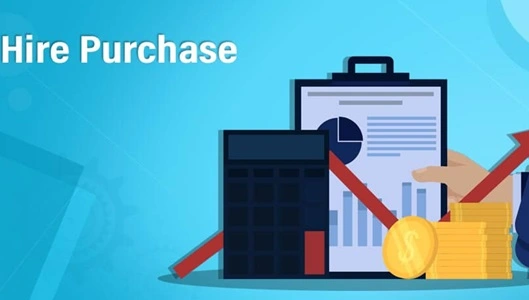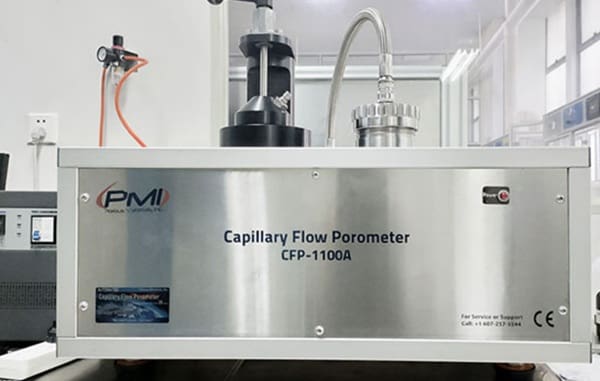The term “Hire Purchase” is mostly used in large-scale businesses where they need to buy some really big or costly machine or asset, most of the time importing from some other nation. You can consider this type of purchase as a really convenient financing plan whereby you can start using an asset, such as an asset or equipment, straight away following a modest down payment. The interesting aspect is You are not immediately obliged to pay the whole sum. It is much more controllable if you divide the expense into consistent payments. The problem is that, although you can use the item right now, you do not really own it until you have paid all the taxes and interest. It is thus somewhat similar to renting-to-own.
Big-ticket items are ideal for this approach since they help you pay over time, therefore reducing the stress of those costly expenditures. So, that is pretty much what Hire Purchase is all about, and if you really want to dig a little deeper into the details of such a purchase like what are its pros and cons, then keep on reading. That’s precisely what the following sections are all about, so, here we go.

Advantages of Hire Purchase
1. Use It Now, Pay Later
Using such pricey things immediately without paying the whole amount beforehand is one of the main benefits of hire purchase. For companies and people that need expensive equipment, such as machinery or vehicles, but lack the money to acquire them straight forward, this is a lifeline. Imagine a corporation requires specialist equipment for production, they can start using it right away to increase income and expand their company from the very first day.
2. Budget-Friendly Payments
By extending the expense over a certain period, perhaps several months or even years, hire buy makes big-ticket things reasonably accessible. Rather than a frightening flat sum, you get reasonable monthly payments. This arrangement lets you manage other bills without becoming broke, so helping you to control your budget overall.
3. No Surprises with Fixed Interest Rates
The fixed interest rate of such purchase agreements is one really excellent feature. Your monthly cost stays the same throughout the contract, so budgeting is easy. You know exactly what you will pay each month; if interest rates go crazy, there are no unpleasant shocks, you know?
4. Yours to Keep at the End
Unlike leasing, in which you essentially rent the item, the hire purchase results in you owning the asset upon the last payment is made. Indeed, the asset is entirely yours once you have paid all the installments. Anyone trying to increase their capital or compile their assets will find this fantastic, and that’s why so many businesses go with this type of purchase.
5. Potential Benefits for Taxes
With a hire purchase, depending on where you live, there could very well be some really amazing tax benefits. Tax-wise, you see, businesses can typically write off the depreciation of the asset and the interest paid, therefore optimizing their financing, you know? The fascinating aspect of your payments could be deducted as a business expense, thereby reducing the total cost still more.
Disadvantages of Hire Purchase
1. Costs More in the Long Run
The main disadvantage of hire buy or purchase is that you spend more than if you bought the thing straight-forward. This is so because you are also paying interest on top of asset costs. Although spreading out payments would seem simpler in the pocketbook, in the end your total paid amount is more. For example, the total cost of an automobile purchased on hire-buy could be far higher than if you had paid for it all at once.
2. No Ownership Until It’s All Paid Off
You do not really own the asset with a hire purchase until you have paid the very last payment. Technically, then, throughout the payback time the automobile, gadget, or whatever you purchased still belongs to the seller or finance firm. Should you forget a payment, they are entitled to have it taken back. This can be dangerous, particularly in case your company or everyday life depends on the item.
3. The Risk of Losing the Asset, How?
Repossession risk is another main drawback. How exactly? Missing payments could cause the asset, which isn’t really yours until you’ve paid, to be taken away by the seller. This implies not only losing the item but also maybe losing all the payments you have already made. Moreover, repossession can severely affect your credit score, so making future loans or financing more difficult.
4. Fixed Terms Can Be a Hassle
Fixed terms on hire purchase agreements can be problematic should your financial circumstances change down the line. Being trapped with a defined payment plan might be difficult if your income unexpectedly drops or if you have unanticipated spending, you know?
5. More Paperwork and Tracking
Dealing with hire purchase agreements can be more difficult than merely purchasing something straightforward or right away. You must manage any problems that arise, grasp all the fine print, and track payments. For companies, this might increase the administrative burden, particularly in cases of several agreements in place, you know?
6. Limited Safety Net for Buyers
Hire purchase arrangements provide little defense if you find yourself in financial hot water, that is, going bankrupt. The asset cannot be utilized to pay off debt since it legally belongs to someone else until the last payment is paid. This leaves you without the asset, so, should you have to file for bankruptcy, it counts not toward your assets. This is a difficult place to be in, should financial circumstances go south, you will be left vulnerable.
Comparison Table for Advantages and Disadvantages of Hire Purchase
| Advantages | Disadvantages |
| Immediate use of items | Higher overall cost due to interest |
| Manageable monthly payments | No ownership until the final payment |
| Fixed monthly payments | Risk of repossession |
| Asset ownership at the end of the term | Fixed payment terms |
| Potential tax benefits | Requires extensive paperwork management |
| Limited protection during financial hardship |

